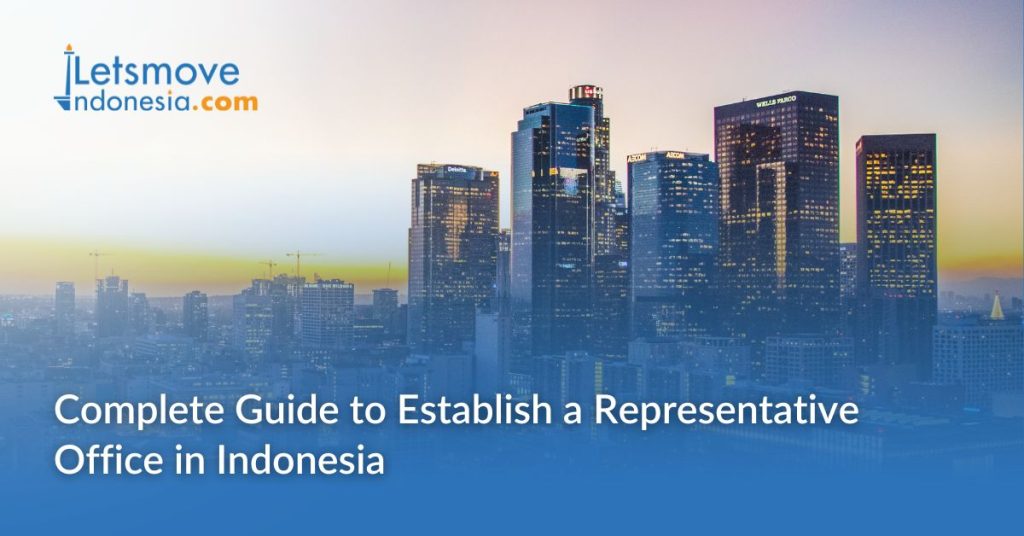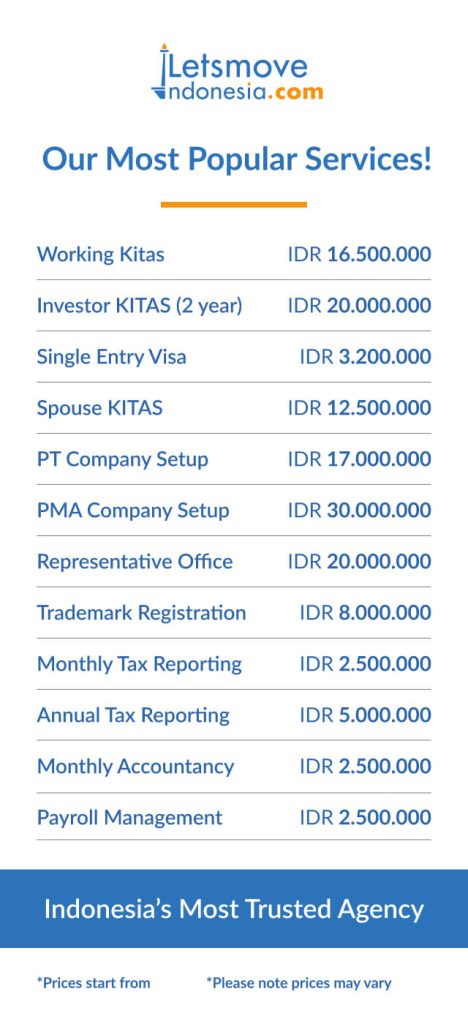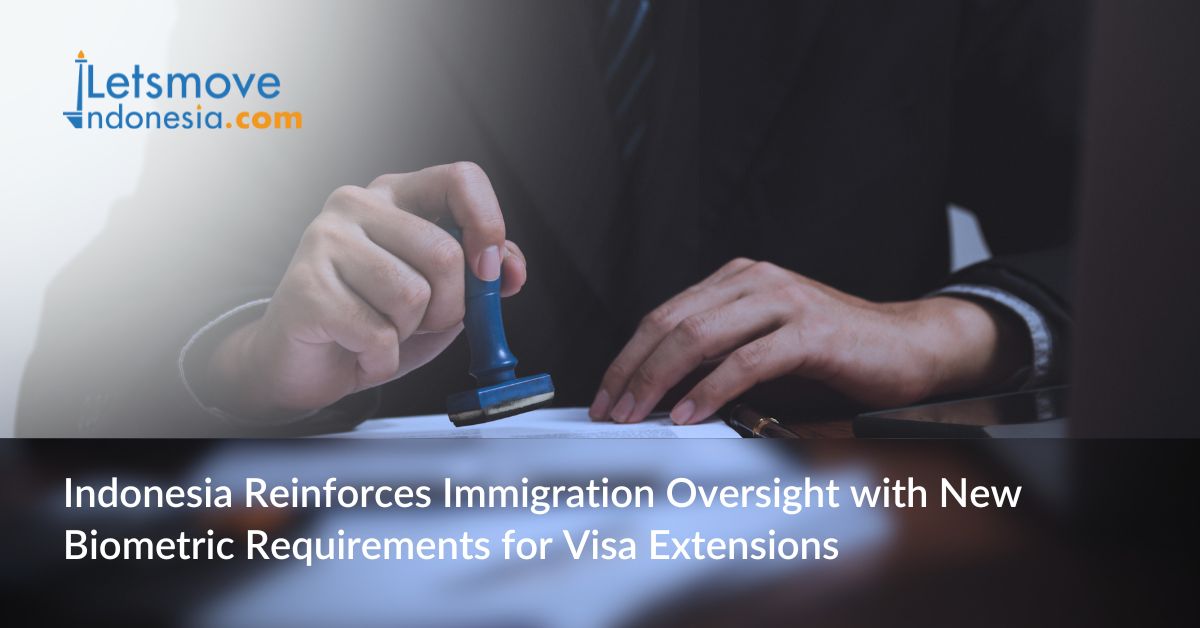Instead of establishing a full-fledged company, there are a few options you can explore to establish a Foreign-owned company in Indonesia. One of the most common choices is to set up a KPPA or Representative Office to cut off a lot of hassle in handling the company incorporation procedures and be more focused on optimizing your market research, promotional activities, and other liaison purposes before expanding your business in Indonesia.
What is a Representative Office?
A representative office in Indonesia is a type of business entity that allows foreign companies to establish a presence in the country without engaging in commercial activities. It serves as a liaison between the parent company and its customers, partners, or subsidiaries in Indonesia.
Representative offices in Indonesia are non-commercial entities that engage in limited activities. They serve to conduct market research, facilitate communication, and perform quality control for foreign companies. However, they cannot engage in profit-generating activities, issue invoices, or enter into contracts. Representative offices are not separate legal entities and operate as extensions of the foreign company. To establish a representative office, the foreign company must meet requirements set by the Indonesian Investment Coordinating Board. Reporting obligations to the authorities is necessary, and the duration of a representative office is typically limited, with the possibility of renewal if needed.
What are the advantages of setting up a Representative Office in Indonesia?
Setting up a representative office in Indonesia offers several advantages for businesses seeking to expand their presence in the country. Here are some key benefits:
- A representative office enables companies to establish a physical presence in Indonesia without the need for extensive legal and financial requirements. It allows businesses to explore the market, conduct market research, build relationships, and promote their products or services.
- A representative office serves as a platform for business development activities. It enables companies to establish connections with local partners, distributors, suppliers, and potential clients. This helps in understanding the local business landscape, cultural nuances, and market trends, facilitating smoother entry and expansion into the Indonesian market.
- Setting up a representative office allows companies to comply with Indonesian regulations and gain better insight into the legal framework and business practices. It provides an opportunity to familiarize themselves with local laws, regulations, and licensing requirements, minimizing potential risks and ensuring legal compliance.
- Through a representative office, companies can gather valuable market intelligence, including consumer behaviour, preferences, and competition analysis. This information helps in developing effective marketing strategies, adapting products/services to local needs, and making informed business decisions.
- Representative offices are typically limited in their activities, which helps control costs compared to fully-fledged subsidiaries. It provides a cost-effective way to establish a local presence, initiate market entry, and assess the feasibility of further investments in the country.
- A representative office allows companies to showcase their brand, build brand awareness, and establish credibility in the Indonesian market. It provides networking opportunities, participating in industry events, and enhancing the company’s reputation within the local business community.
- If a company decides to withdraw from the Indonesian market, closing down a representative office is relatively straightforward compared to winding up a subsidiary. This flexibility offers a convenient exit strategy if the market conditions or business objectives change.
What are the requirements for setting up Representative Office in Indonesia?
To set up a representative office in Indonesia, there are specific requirements that need to be completed. While the exact requirements may vary based on the specific circumstances and the sector in which the representative office will operate, here are some common requirements:
- Parent Company: The parent company must be a legal entity that has been operating for at least three years and can provide supporting documents to prove its existence and financial stability.
- Letter of Appointment: The parent company must issue a letter of appointment designating an individual to act as the head of the representative office in Indonesia.
- Office Space: A representative office must have a physical office space in Indonesia. The office location should comply with local regulations and zoning requirements.
- Business Activities: Representative offices are restricted from engaging in revenue-generating activities in Indonesia. The activities of the representative office should be limited to market research, promotion, and support for the parent company’s business.
- Licensing: Representative offices need to obtain a license from the Indonesian Investment Coordinating Board (BKPM) or its representative office. The licensing process involves submitting required documents and paying the necessary fees.
- Bank Account: Opening a local bank account is usually required for the representative office to handle financial transactions related to its operations.
- Tax Obligations: The representative office must fulfil its tax obligations, including obtaining a tax identification number (NPWP) and filing periodic tax reports.
What are the allowed activities for KPPA / Representative Office in Indonesia?
A KPPA (Kantor Perwakilan Perusahaan Asing) or Representative Office in Indonesia is subject to certain restrictions on its activities. While it cannot engage in direct revenue-generating operations, it is permitted to undertake the following activities:
A representative office can conduct market research to gather information about local market trends, consumer behaviour, and competition. This includes collecting data, analyzing market potential, and providing reports to the parent company. This type of office can also engage in promotional and marketing activities to create brand awareness, such as organizing events, participating in trade shows and exhibitions, and advertising the products or services of the parent company.
The representative office can assist in establishing and maintaining relationships with local partners, distributors, suppliers, and clients. It can act as a liaison between the parent company and potential business partners, facilitating communication and negotiations, and monitoring the quality of products or services provided by the parent company in Indonesia. It can also offer after-sales services, handle customer inquiries, and provide support to local clients.
Lastly, the representative office can conduct training programs for employees of the parent company or its local partners. It can also provide technical support and assistance related to the parent company’s products or services.
What are the types of Representative Offices in Indonesia?
In Indonesia, there are several types of representative offices that companies can establish based on their specific needs and objectives. Here are the common types:
Foreign Representative Office (FRO / KP3A)
Foreign Representative Office (FRO): A Foreign Representative Office is a non-commercial entity established by a foreign company in Indonesia. Its primary purpose is to represent the parent company and facilitate communication, coordination, and information exchange between the parent company and its affiliates or clients in Indonesia. FROs are restricted from engaging in any revenue-generating activities.
Representative Office for a Foreign Trading Company (TRO)
Trade Representative Office (TRO): A Trade Representative Office is established by foreign companies to promote and facilitate trade activities between the parent company and Indonesian partners. TROs focus on market research, product promotion, and exploring business opportunities. Like FROs, TROs are not allowed to conduct direct sales or revenue-generating activities.
Representative office for a Foreign Construction Company (BUJKA)
Regional Representative Office (BUJKA): A Regional Representative Office, also known as BUJKA (Badan Usaha Jasa Keuangan Asing), is specific to financial services companies. It serves as a liaison office for the parent company’s financial services activities in Indonesia. BUJKAs are regulated by the Financial Services Authority (OJK) and must comply with relevant financial regulations.
Representative Office for Foreign Electricity Supporting Services (JPTLA)
Representative Office of Foreign Construction Company (JPTLA): JPTLA (Kantor Perwakilan Perusahaan Asing) is a representative office established by foreign construction companies in Indonesia. Its purpose is to facilitate the coordination, monitoring, and implementation of construction projects in the country. JPTLAs are subject to specific regulations outlined by the Ministry of Public Works and Housing.
Branch office vs. Representative office
When expanding business operations in Indonesia, companies have the option to establish either a branch office or a representative office. Here’s a comparison of the two:
Branch Office
Legal Entity: A branch office is considered a legal entity extension of the parent company. It has the authority to conduct commercial activities, enter into contracts, and generate revenue in Indonesia.
Operations: A branch office can engage in operational and revenue-generating activities related to the parent company’s core business. It can directly carry out sales, manufacturing, and distribution activities.
Taxation: A branch office is subject to Indonesian corporate income tax on its profits.
Local Requirements: Setting up a branch office requires compliance with more extensive legal and financial requirements. It involves registering with the Indonesian Investment Coordinating Board (BKPM) and obtaining necessary licenses and permits.
Liabilities: The parent company holds unlimited liability for the obligations and debts incurred by the branch office.
Representative Office
Non-Legal Entity: A representative office is not considered a separate legal entity. It serves as a liaison or promotional office for the parent company in Indonesia and cannot engage in direct revenue-generating activities.
Operations: A representative office is limited to non-commercial activities such as market research, promotion, and facilitating communication between the parent company and potential clients, suppliers, or partners.
Taxation: A representative office is not subject to corporate income tax as it does not generate revenue.
Local Requirements: Establishing a representative office requires obtaining necessary licenses and permits from relevant government authorities such as BKPM and the Ministry of Trade.
Liabilities: A representative office does not have its legal status, so the parent company assumes liabilities for the office’s actions and obligations.
Alternative business entities for company incorporation in Indonesia
In addition to representative offices, two common alternative business entities for incorporation in Indonesia are PT (Perseroan Terbatas) and PT PMA (Perseroan Terbatas Penanaman Modal Asing). Here’s a brief overview of these entities:
Local PT Company
A PT is a limited liability company available for both domestic and foreign investors. It is suitable for a wide range of business activities and allows for full operational and commercial activities in Indonesia. A PT can be established with 100% foreign ownership or in partnership with Indonesian shareholders. It offers flexibility in terms of shareholding structure, management, and operations. PTs are governed by Indonesian Company Law and must comply with regulatory requirements, such as annual financial reporting and tax obligations.
PT PMA Company (Foreign Investment Company)
PT PMA (Perseroan Terbatas Penanaman Modal Asing): PT PMA is a foreign-owned limited liability company specifically designed for foreign investors. It is required for businesses where foreign ownership exceeds the thresholds defined by the Indonesian Negative Investment List (DNI). PT PMA offers the advantage of 100% foreign ownership in most sectors, subject to specific limitations on certain industries. It follows the same regulations as PTs, including compliance with corporate governance, financial reporting, and tax obligations.
Start your Representative Office with LetsMoveIndonesia
To ensure the smooth setup of your Representative Office in Indonesia, engaging with a reliable agent to handle your foreign investment company could save you unnecessary steps by knowing which process you need for your company.
As the best provider of Legal Services in Indonesia, Let’sMoveIndonesia offers professional Legal services assistance for foreigners who need to establish a KPPA in Jakarta and Bali. With our expertise and knowledge of Indonesian company law and foreign direct investment regulations, we provide a seamless and efficient process for setting up a business entity.
Check out our Representative Office Page to learn more about setting up a Representative Office in Indonesia with LetsMoveIndonesia or speak to our consultants now through our FREE Consultation!
Want to know more? Then check out our useful guides below by clicking the links:
Company Establishment in Indonesia – Your questions answered
Registering a Trademark in Indonesia – How to protect your business
Business Establishment – The Process and Requirements











